The Climate Conversations: Singapore researchers come face to face with Antarctica’s melting glaciers
Losing their luggage on a 60-hour journey did not deter Singapore researchers from their expedition to Antarctica. Professor Benjamin Horton and PhD student Tan Fang Yi explained why on CNA’s The Climate Conversations podcast.
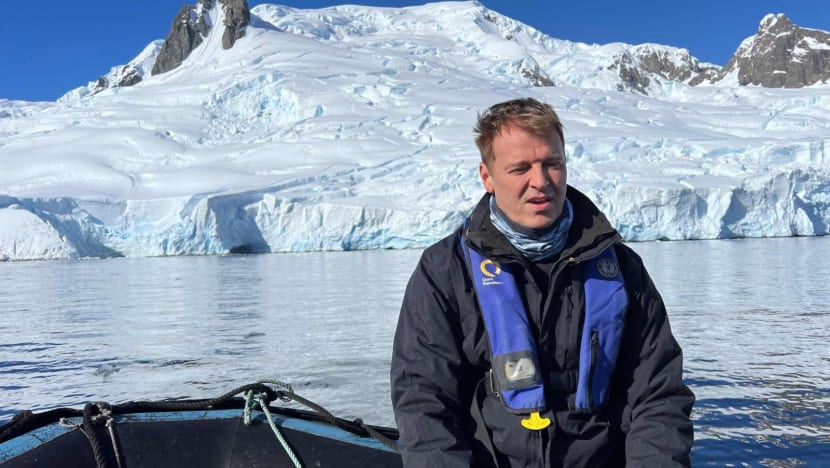
Professor Benjamin Horton, director of NTU’s Earth Observatory of Singapore on a boat in Western Antarctica (Photo: Unboxed Media/Sandra Lim)
SINGAPORE: Standing on an ice sheet with only a t-shirt on his back was not how Professor Benjamin Horton thought his trip to Antarctica would go.
“The first couple of days, the weather was amazing. The oceans were like a mirror. We had wildlife, humpback whales, popping out (of the ocean),” said the director of the Earth Observatory of Singapore.
“I was over dressed.”
It was around 15 degrees Celsius in the afternoon, not the type of temperature he was expecting to face in the South Pole.
“At the end of it, I was just wearing a t-shirt, no hat, no gloves,” the 52-year-old scientist told CNA’s Julie Yoo in The Climate Conversation podcast.
Antarctica is the coldest, driest and windiest continent on the planet. But summers here can be surprisingly mild and unpredictable.
The next morning, weather conditions were so poor the team could not get off the boat.
“We went in the summer season and it was brutal. You can't go in the winter season, so you only get these brief snapshots,” said Prof Horton.
The professor and 26-year-old PhD student Tan Fang Yi were part of a Singapore scientific expedition to Antarctica to study sea level rise.
Their work included sampling past ice temperatures to make better projections of Antarctica’s glacier tipping point, known as the marine ice sheet instability. Once the threshold is crossed, scientists believe that efforts to cut greenhouse gas emissions back to pre-industrial levels may no longer be enough.
“Every low-lying coastal nation will be influenced by what’s happening at the poles. That ice sheet has enough water contained within its ice to raise global sea levels in excess of 60m. And when a third of Singapore is only 1m above high tide, you can see why it's important,” said Prof Horton.
During the trip, the scientists also collected samples of Antarctica’s air and ocean water in hopes of understanding how it can help regulate the earth’s climate.
Here are some highlights of their trip.
WHY IS ANTARTICA IMPORTANT TO THE PLANET?
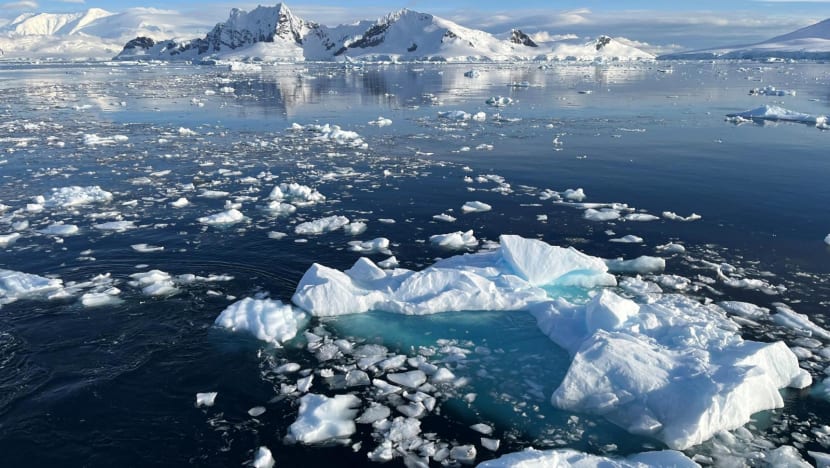
Prof Horton: “One of our problems (as scientists) is quantifying that amount of melt. It's not an easy thing to do, because there's a lot of natural variability.”
Prof Horton: “(Antarctica) act(s) as the refrigerator of our planet. The tropics get most of the incoming solar radiation, the poles get a minimal amount. So heat through the atmosphere or oceans are transported to the poles from the tropics and that keeps our climate in equilibrium.”
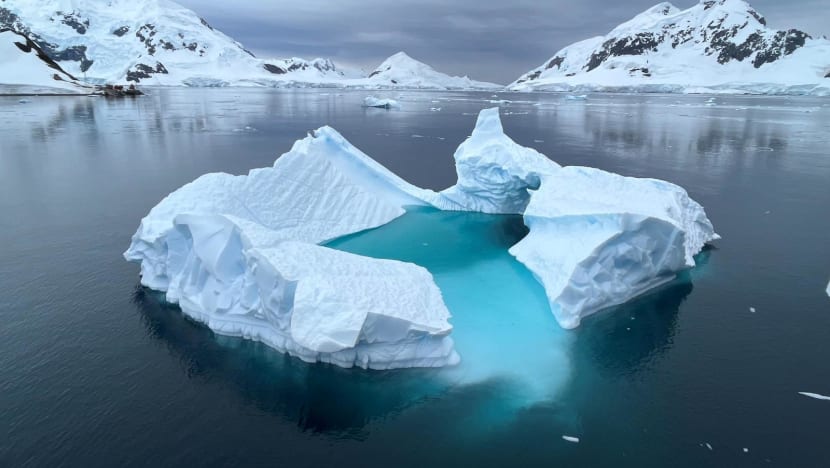
Prof Horton: “(Antarctica) also acts as the mirror of our planet. So incoming solar radiation from the sun, about 90 per cent of it, when it hits ice is reflected back out into space again ... If you lose the ice, more radiation is absorbed, you warm up the planet (and) you lose more ice.”
BEING ADAPTABLE
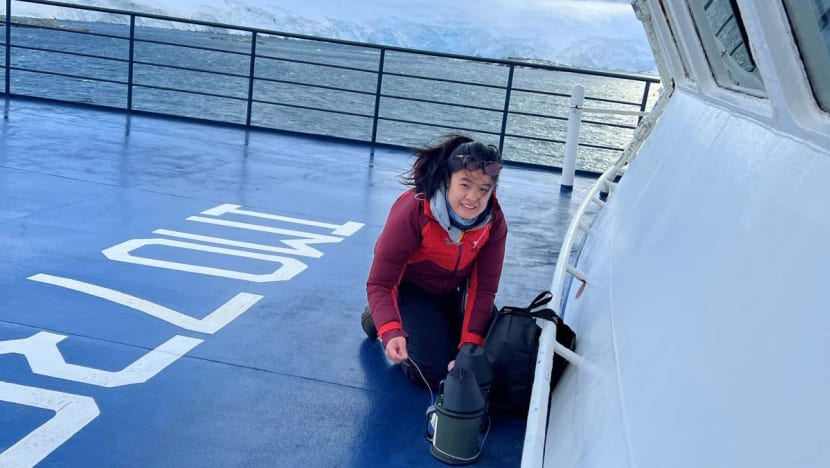
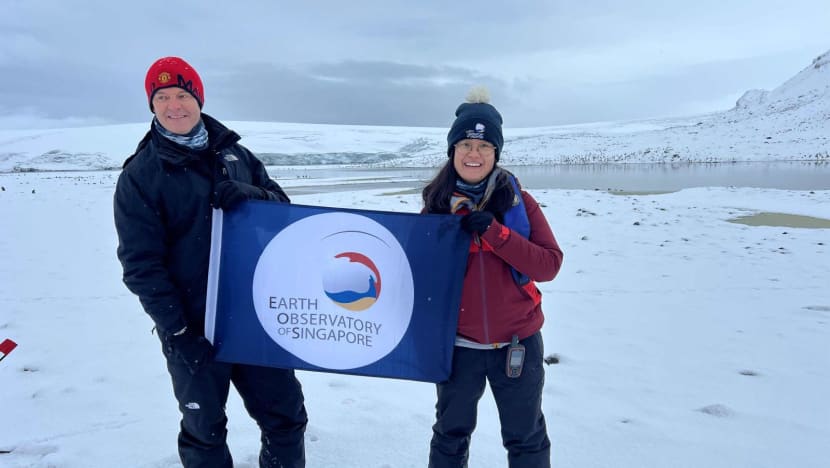
Tan: “I realised how flexible we have to be when trying to conduct experiments because we really have to work around the conditions and the weather. It’s not like in Singapore where I know (when) low tides are coming.”
Prof Horton: “When we're on the pristine landscape, the soles of our feet are allowed on the land but nothing else. You're not allowed to sit, you can't put your hand down, you can't put your bag down. (This) causes some problems when we're trying to do scientific experiments.”
WOULD THEY ENCOURAGE OTHER PEOPLE TO TRAVEL TO ANTARCTICA?
Tan: “Being in (Antarctica) feels very different, but also (we think about) the carbon footprint it takes to (get there). So that's why I think when we were there, we wanted to make sure that we obtained multiple objectives at one time. We do research, we do communication (to the public about climate change) and we collect samples for other members in our research institute.”
Prof Horton: “For scientists like ourselves, having the opportunity to go to Antarctica really cannot be missed. But do people need to go to Antarctica to see climate change? No, they (just) need to think (about) how hot it (is) in Singapore.”
To find out more, check out this episode of The Climate Conversations here.













